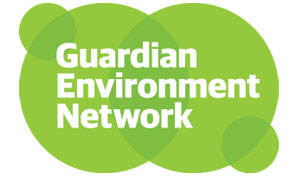


When nature produces waste, it recycles it all!
Today we produce a lot of rubbish, and most of it ends up under ground. How much of all this waste could be recycled?

Step 1
 Look at the content of your rubbish bin, and see what you have thrown away (do it outside on newspaper).
Look at the content of your rubbish bin, and see what you have thrown away (do it outside on newspaper).
Weigh the contents and separate them, e.g. glass, food waste, plastics, textiles, paper and metals.


- You should have your parents' permission (or help) before doing this.
- Wear a pair of washing-up gloves and old clothes.
- Be very careful with broken glass and sharp edges of cans as you could cut yourself and get infected!
- Never taste or inhale unknown substances!
Step 2
How much of this rubbish do you think can be recycled or put back into nature's natural cycle? You can contact your local environmental or conservation group for ideas on how you can recycle some of your rubbish. Find out where your nearest recycle centre is!
Here are some examples to get you started!
 Paper
Paper
- Many charities and organisations collect old newspaper and magazines to be recycled. You can try and contact those in your area.
- There are also recycle bins at supermarkets.
Glass

- There should also be bottle-banks for bottle and jars at your nearest supermarket, or at your nearest recycle centre.
- You can ask your local authority about this.
- There are different colours of glass, make sure you separate them, and put them in the right recycle bin!
 Aluminium cans
Aluminium cans
- Aluminium cans can be washed and crushed and taken to a recycle centre. Again, there should be one at your nearest supermarket, if not, contact your local authority or look in the yellow pages.

- At concerts, fairs, and other events, you could be paid for every can you collect!
- Only aluminium can be recycled not other ones! To find out if a can is made of aluminium, use a magnet! Aluminium cans are NOT magnetic, others are!
Organic Waste

- This is anything that will rot (vegetables, fruits…). You can use it as compost for your vegetable garden, and if you do not have one, you can start one!
Plastics

- Plastic bottles and containers are usually all recyclable, you should also be able to find a recycle bin for plastics at your recycle centre.
- You can probably crush some of them (some plastic bottles for water have now been designed for this), and then it will take less space in the bin.
- You could find out if your council collects them from your house.
Step 3

- Hopefully, you should have nothing left. But if you do, it is probably rubbish like chemicals, plastic bags and non-aluminium cans, these cannot be recycled at the moment.
- Weigh this waste - the less there is the better! See if you can reduce it in the future, for example, you could start buying products with less packaging or by always taking with you the same bags when you go to the shops.











Tidak ada komentar:
Posting Komentar